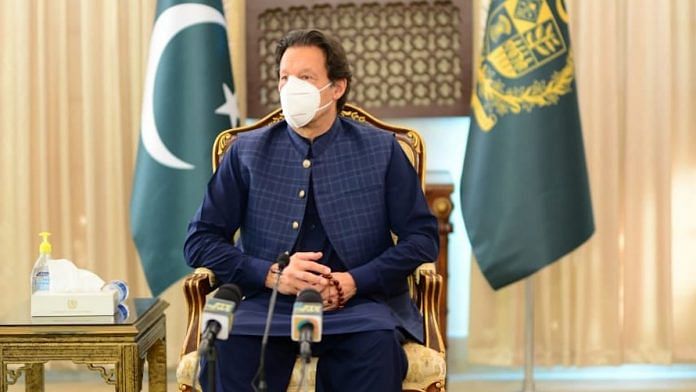Pakistan’s Prime Minister Imran Khan has claimed on many occasions that under his government, the Pakistani media was ‘freer than the British media’. However, the worst curbs imposed on Pakistani media are reported by not only international watch bodies such as Committee to Protect Journalists, Amnesty International, Freedom House, but also by the well-reputed publications like the ThePrint, The New York Times, The Guardian, The Washington Post, The Diplomat, etc.
But when Pakistani media outlets report about it, it is not without consequences. These range from the suspension of TV channels, obstruction in distribution of newspapers, blockade of websites, threatening journalists, enforced disappearances of journalists, pressuring media owners to lay-off journalists critical of the government or military establishment, and so on. None of these amounts to holding the perpetrators accountable, ever. The result is that impunity for crimes against media rules Pakistan.
None of the above, however, suggests that Imran Khan’s government is the only perpetrator of these offences. In fact, this government has just built on the pace set by its benefactors in the military establishment. I am among the few Pakistani journalists who have been consistent in reporting the extent and scale of censorship since much before Imran Khan came to office. As part of a special fact-finding mission that included some senior journalists of impeccable repute, constituted by the Human Rights Commission of Pakistan (HRCP), in 2018, we had highlighted media engineering during election campaigns. Unfortunately, all our efforts were termed ‘anti-Pakistan’ or ‘pro-India’, ‘pro-corrupt political elite’, and there was no accountability whatsoever for unprecedented censorship and control of media.
Also read: Imran Khan govt seen getting intolerant of criticism as journalists face treason cases
Self-censorship takes over
During the process of the fact-finding mission, I was informed by many reporters, employees of cable operators, and news agencies, about mysterious phone calls from undisclosed numbers that ‘advised’ them to ‘do the needful’, failing which there would be ‘consequences’. What consequences was anybody’s guess, and no one seemed to be too excited to talk about them either. Deciphering what ‘consequences’ meant wasn’t really rocket science. Lay-offs, cyber-bullying, threats, and brief enforced disappearances (a euphemism for unwarranted abductions and accompanied torture by security agencies) sky-rocketed during those days. Prime Minister Imran Khan is just continuing them.
The 2019-2020 report by the Freedom Network records 91 attacks against journalists across Pakistan in a one-year period, with the top three types of attacks being verbal or written threats of murder or ‘dire consequences’ (23 cases), off/online harassment (13 cases), and assassination attempts (11 cases), of which seven resulted in the actual killing of journalists. As the Committee to Protect Journalists (CPJ) also asserts, these numbers might indicate a downward trend in journalists’ killings compared to the statistics from 2011-14, but this only means a shift in the trends and tactics used for intimidating journalists.
With the background knowledge of these killings, violent attacks and enforced disappearances, when journalists receive a WhatsApp message from a senior or even mid-level official of the ISPR (Inter-Services Public Relations, the media wing of the military) dictating what should or should not go in their stories, self-censorship takes over. Pakistan’s media watch organisations Freedom Network and Pakistan Press Foundation have both noted that this decline in killings could be attributed to a widely observed self-censorship.
Despite the fact that most often it is Pakistan’s all-powerful, un-accountable security establishment that is behind such intimidation of journalists, much of this situation could have been in control had there been even an inkling of rule of law. If somehow this cycle of impunity is broken or even disrupted, it would be difficult for even the most rogue of an establishment to carry on with intimidation tactics. Successive governments over the last two decades have failed to investigate even high-profile cases. The otherwise hyperactive ‘activist judiciary’ too has remained largely ineffective in calling out the abusive institutions of what our senior colleague Najam Sethi calls ‘Miltablishment’.
Also read: The cost of speaking truth to power in Imran Khan’s Naya Pakistan — you might not return home
Standing by journalists
On the International Day to End Impunity for Crimes against Journalists (IDEICJ) in 2019, the Pakistani government announced a law supporting the protection of journalists. The Human Rights Ministry worked hard on a detailed draft of the bill that was accepted by all stakeholders including editors and journalists’ bodies. It is not clear whether the bill succumbed to some inter-ministerial squabble or was rubbished by the deep state.
Whatever the real cause may be, the bill stands buried in official rigmarole leaving this pledge by the government unfulfilled even a year after the announcement. In order to mark the day in its true spirit, and to demonstrate the government’s sincerity in its claims of commitment to free press, it is crucial that the Imran Khan government presents the law to protect journalists, in parliament, where it must be passed post-haste after meaningful debate.
The 2020 theme for this day highlights the importance of investigating and prosecuting crimes and attacks against journalists in order to end impunity. If PM Khan wants to have the global community believe his (largely made-up) credentials of liberal values and regard for human rights — the inalienable part of which is freedom of expression and information — his government must at least ensure transparent investigations in all cases of attacks against journalists and activists. If the government remains unwilling to abide by the principles it has agreed to in the United Nations by signing commitments such as the UN Plan of Action on the Safety of Journalists and the Issue of Impunity, no amount of advocacy by non-profit national and international organisations can bring any substantial change.
Marvi Sirmed is a journalist and human rights defender from Pakistan. She is currently working from the US on a book about freedom of expression and shrinking civic space. Views are personal.



